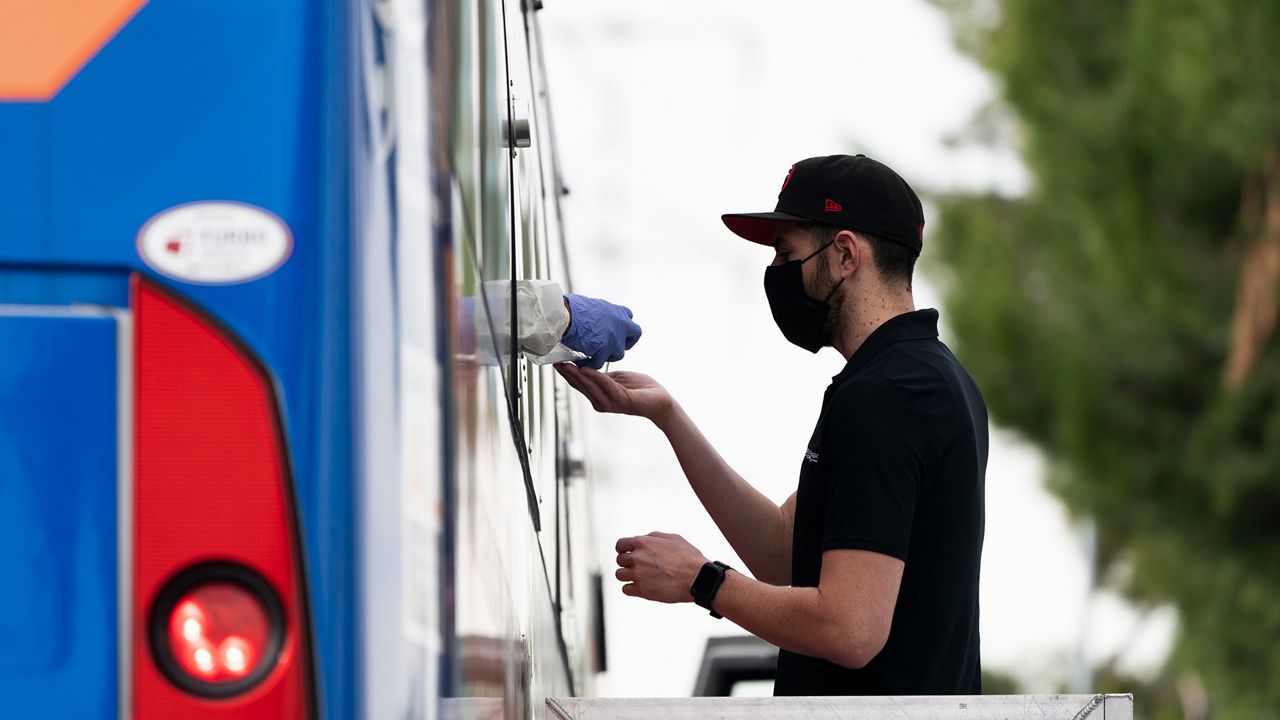COLUMBUS, Ohio — As the spread of coronavirus increases moderately in the U.S., some uninsured Americans are getting hit with bills for testing costs due to a federal COVID-19 funding gap.
What You Need To Know
- A lack of federal funding is affecting access to COVID-19 testing
- Uninsured Americans now have fewer options for free testing
- Federal officials are hopeful Congress will approve additional funding
These costs deter uninsured patients from getting tested, according to Eric Morse, president of The Centers, a nonprofit with five health centers in northeast Ohio.
“This is really important. I think there's another surge coming and if we don't have testing in place, I think it's going to be pretty bad,” he said. “So I just really hope Congress takes this up and gets something passed.”
Since March 22, HHS’s Health Resources & Services Administration (HRSA) uninsured program has not been accepting claims for COVID-19 testing, among other types of claims, because it lacks funds.
As of the latest Centers for Disease Control and Prevention estimates for last summer, 8.9% of Americans were uninsured.
Congress is in recess until next week, and lawmakers left Washington earlier in the month split on a legislative solution to coronavirus funding.
On Sunday, Dr. Ashish Jha, the White House’s COVID-19 response coordinator, said he is hopeful Congress will approve funding soon.
“Congress comes back next week. My hope is that they pick this issue up right away and make sure that we get funding to the American people so that we can make sure the treatments, vaccines, tests all continue to be available for Americans,” he said in a Fox News interview.
Two of the largest diagnostics and testing companies in the U.S., LabCorp and Quest Diagnostics, are charging uninsured patients $100 or more for PCR testing services, company officials told multiple media outlets.
Uninsured Americans do not have to pay for COVID-19 tests purchased by the federal government.
In the case of vaccines, the HHS uninsured fund reimbursed providers about $40 for administering each vaccine shot until it stopped accepting claims on April 5. But vaccine sites taking part in the CDC’s vaccine program may not pass those costs onto their patients. So providers like The Centers are taking a financial hit from this requirement amid the lack of funding because they must administer vaccines to uninsured people while getting no payment from the federal government.
With testing, it’s a different situation because testing supplies are often purchased privately and testing providers are allowed to charge uninsured patients.
The bill may include the cost of the test and a payment to the testing provider for the encounter. Additionally, there are costs for the lab work to process certain types of tests. “It’s not cheap,” Morse said.
All of these costs can now fall on an uninsured patient. Morse said many of their patients do not have insurance, and he expects the need for testing among the uninsured to rise in the months ahead.
The Centers has a limited number of remaining rapid PCR tests that it is offering for free to anyone, regardless of insurance, at its pharmacies. It is also directing uninsured patients to at-home tests, which it sells for $10 per test.



